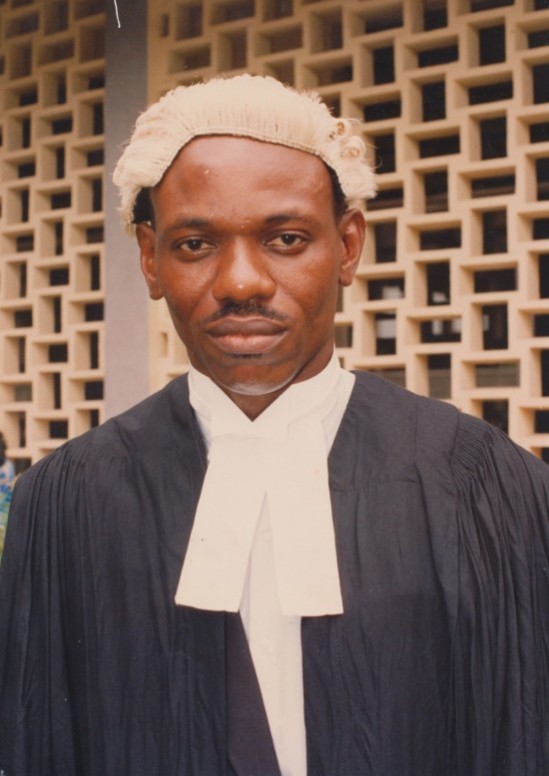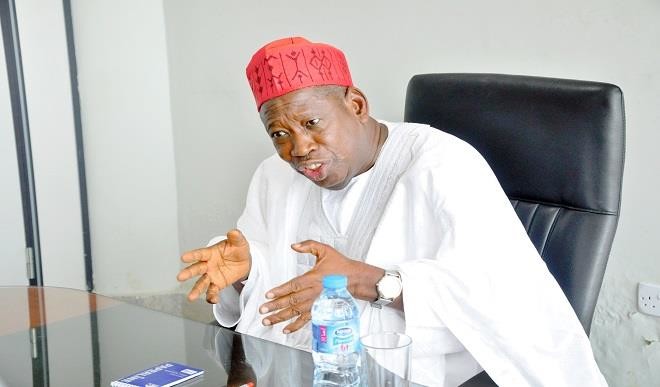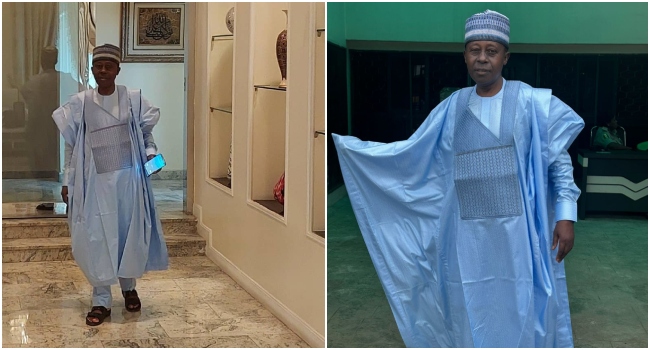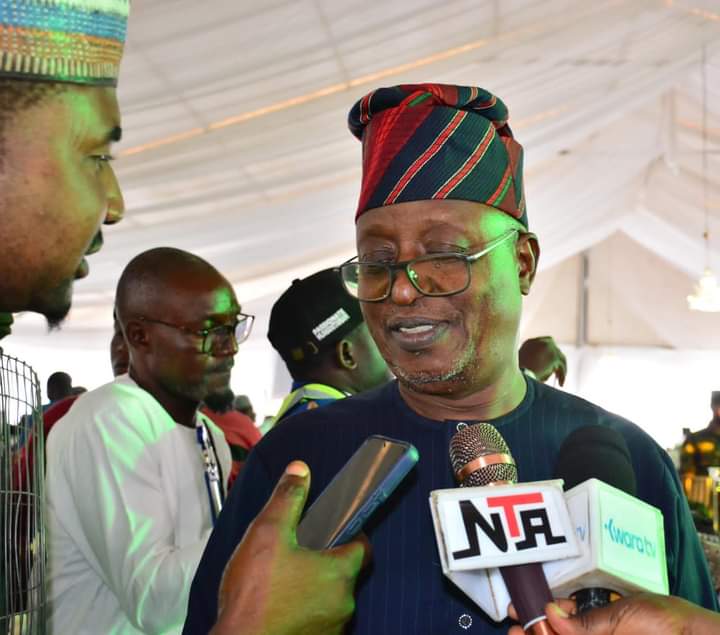- Ajala: 9/11 Nigerian Hero Who Died for Others to Live
The seventeenth anniversary of the September 11, 2001 terrorist attack on United States was marked on Tuesday. A tribute on one of the three Nigerians who died in the attack, Godwin Ajala, first published on the tenth anniversary is reproduced below.
Ahead of today’s seventeenth anniversary of the 9/11 terrorist attacks on the United States (September 11, 2001), families, friends, colleagues and others worldwide have in various ways been remembering the victims of the incident.
Residents of Dividing Creek in New Jersey have been placing flags to represent those who lost their lives. One of the flags is for Godwin Ajala, the only Nigerian officially listed among the deceased.

Godwin Ajala
Although he is known at home as Godwin Ajalli, all the records of tribute referred to him as Godwin Ajala. He hailed from Ihenta in Akaeze Local Government Area of Ebonyi State.
As part of activities marking the 17th anniversary, Janice Laws on September 7 this year wrote in the guest book of tributes for the victims on the website legacy.com: “I am proud to say that I placed a flag for Godwin Ajala” Ajala, who was 33 and a qualified lawyer before he left Nigeria was at the time of the attack an Access Control Officer working at the Concourse level of one of the World Trade Centre buildings.
Apparently exhausted after helping to guide many out of the attacked building, Ajala reportedly first went into a coma and did not die until the following Sunday.
But for the economic situation in Nigeria which has forced many professionals to seek greener pastures abroad, Ajala might not have been anywhere near the scene of the attack. He would have been practising as a lawyer in Nigeria. According to a New York Times profile on him, he migrated to the United States in 1995, hoping to earn more support for his family.
The New York Times report on the life and times of the 9/11 victims titled Profiles in Grief provided some insights into Ajala’s sojourn in the US and his unfulfilled dreams. The paper wrote, “At first he bounced between jobs, but ultimately he landed a steady position as a security guard at the World Trade Centre. Still, he was frustrated, and he began pursuing his dream of becoming a lawyer in America, setting his sights on passing the New York State Bar Exam.
“His roommate, Christopher Onuoha, said Mr. Ajala worked from 6 a.m. to 2 p.m., went home for a nap and then studied for the Bar for six to eight hours, often late into the night. Co-workers said he was last seen helping people escape from the trade centre.
“When he was living here, he was suffering in terms of always working and studying,” said a close friend, Christopher Iwuanyanwu.
“Every September, Mr. Ajala visited Nigeria, and he was planning to travel there again this past September to visit his wife, Victoria, and their three children, Onyinyechi, 7, Uchechukwu, 5, and Ugochi, 1. His friends said he was planning to apply for visas to bring them to the United States.
“His dream was that he would take the law exam, pass it, and with that bring his family here and invite them to the swearing in,” Mr. Iwuanyanwu said.
“He would have been much happier if his wife and kids were around.”
In response to the NY Times profile of Ajala, one Vanessa during the 2010 anniversary wrote “rest in peace, Mr. Ajala. I read your story on a memorial site and it struck a chord with me. Your work ethic reminds me of my boyfriend, who is also Nigerian. Thank you for coming to this country and helping to guide people out of WTC. You will not be forgotten.” Another reader, Alissian wrote in September 2003: “He worked so hard to make a better life for himself and his family only to have the dream destroyed by hatred. I hope he is at peace now and that his family can find peace and happiness in his memory”.
A Nigerian resident in New York, Austin Obi recalls his chance meeting with Ajala and how they became friends.
“It was sometime in early 2000 and I was the Manager at the Burger King right across from the Trade Centre, when Godwin came in for lunch. He saw my name tag and introduced himself and from then on he would stop by every lunch. He was tall, imposing yet very warm, friendly and affable towards my staff and I.
Everybody knew him. We would often talk about home, our families and our goals in America. He was a good man. May You Rest in Perfect Peace, my friend”
Monsurat Laidi, a Nigerian lady who was lucky to escape from the WTC according to a report on Nigeriaworld.com said Ajala who also works with the same company was a surveillance security guard and was normally outside the building. She believes he must have been wounded while trying to help others.
Iwuanayanwu, Ajala’s friend, confirmed that people remember seeing the late lawyer and asking why he was there, why didn’t he leave? His response was “Why are you running? Why aren’t you helping people out?”
Another colleague of Ajala, a security supervisor, who opted to remain anonymous, said he met Ajala that morning in the locker room. He said Ajala was a very popular person at the company and a workers’ union leader.
The security supervisor told Nigeriaworld: “he started work at 6 a.m. that day and we talked about the Jos crisis. I was going to leave at 7a.m. after an overnight shift. He was a union leader and was involved in contract talks on pay with the management of WTC. They just agreed to a salary raise for us. There was a meeting scheduled between the union and the management on that day.”
Continued the source: “After we left the locker room together, we departed and he went to resume work, I left him and we said we would see later.” The meeting was never to be.
Ajala is undoubtedly one of the heroes of the 9/11 attack. One of the best tributes which aptly captures the place of Ajala among the victims of the attack is by a blogger named CarpeDM.
“In a world where so many people are looking out for their selves, this man risked his life for others. Who knows how many were saved because of him? Today, whenever I see a flag or hear someone speak about 9/11/01, I will think of all those who died. And I will think of all those who survived because of men and women like Godwin Ajala.”


 Naira4 weeks ago
Naira4 weeks ago
 News3 weeks ago
News3 weeks ago
 Education4 weeks ago
Education4 weeks ago
 Social Media4 weeks ago
Social Media4 weeks ago
 Economy4 weeks ago
Economy4 weeks ago
 Investment4 weeks ago
Investment4 weeks ago
 Dividends4 weeks ago
Dividends4 weeks ago
 Business3 weeks ago
Business3 weeks ago





























